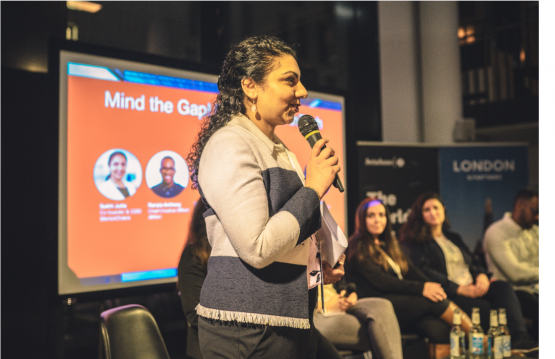Our Co-Founder & COO, Sukhi Jutla, was recently interviewed by journalist Elaine Pofeldt for Quartz article ‘Female entrepreneurs are turning to non-traditional sources to fund their businesses’.
The journalist wrote:
“Sukhi Jutla had no illusions about raising venture capital for her startup, MarketOrders, a blockchain-based global marketplace for the gold and diamond jewelry industry. She knew that in the UK, only 1% of venture capital (pdf) goes to women. And as a minority woman, she faced even steeper odds.
She decided to try to raise the money anyway. She reached out to VCs on LinkedIn and at tech meet-ups, and showed up at their open office hours. After hundreds of meetings over several months, she finally got a bite from a two-man firm that was interested in investing £250,000 pounds (about $329,000).
Jutla started getting uneasy when the investors asked how long it would be until she ran out of money and dragged out their conversations for four months—a month short of when she’d said her cash would dry up. “I felt they were trying to waste my time and get me into a desperate situation,” she said.
After finally making an offer, “one of them kept calling me at times I didn’t think were appropriate—10 pm or 6 am—demanding financial information,” she recalls. “I told him very politely I’d be grateful if you could keep this relationship within office hours.”
“If I invest in you, I own you 24/7,” he responded. Then he threatened, “News travels fast in small circles. You’ll never raise venture capital because of your attitude.”
Jutla gave up on the idea of raising venture capital for MarketOrders. “I decided to take 100% responsibility for raising the funds I needed,” she says. In June, she ran a four-week campaign on the crowdfunding site Crowdcube, raising £439,840 ($579,719)—almost twice as much as the VC investors had offered her.
She has no regrets about leaving the VC world behind. “Most of their deals were just rubbish,” she says. She only sold 9% of her company’s equity, far less than the investors were asking. Today, she’s built the company to 14 employees. Its tech platform is still under construction, but it’s already brought in £100,000 ($131,575) in its first year.”
You can read the full article here.

